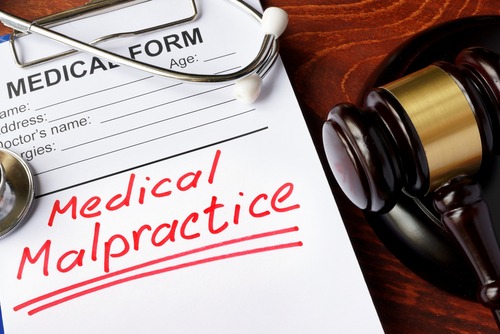 A vegetative state, a condition in which someone is awake but is unaware, can result from medical malpractice in several ways.
A vegetative state, a condition in which someone is awake but is unaware, can result from medical malpractice in several ways.
A vegetative state occurs when a person is awake but does not show any signs of awareness. In contrast, a coma is when a person is both unconscious and unaware. A person in a vegetative state gives no coherent response to anything going on around them or any changes in their environment. They may or may not react instinctively to certain stimuli, such as withdrawing their hand or arm in response to having an IV inserted.
Total paralysis is sometimes a feature of a vegetative state, but other times it is not. A person who is in a vegetative state but not paralyzed may blink their eyes, moan, grunt, cry, or gnash their teeth. However, they have no conscious awareness of their surroundings, no real cognitive function, and no ability to form rational thoughts.
Reasons a Person Goes Into a Vegetative State
A person may go into a vegetative state for a number of reasons. Most often, the condition results from severe brain damage. This damage may arise due to a traumatic brain injury or a medical event or condition that causes a sustained lack of oxygen to the brain.
A traumatic injury can cause swelling in the brain, leading to damage and lack of function. In a worst-case scenario, this can culminate in a vegetative state. When the brain is deprived of oxygen, cells begin to die off, and when they do, they do not regenerate the way damaged cells do in other parts of the body.
Medical Malpractice Can Lead to a Vegetative State
Some causes of vegetative states are unpredictable and beyond anyone’s control. Others are preventable and result from the negligence of one or more parties — often a health care professional. If medical malpractice caused someone you love to enter a vegetative state, you may have grounds for a malpractice lawsuit.
Living in a Vegetative State
A person in a vegetative state cannot live or function on their own and requires 24-hour skilled care. Not only does the patient need help with all daily living activities (e.g., eating, bathing, dressing), but they also need constant monitoring of their vital signs and other health markers. If an emergency should arise, they have no way to tell anyone or summon help.
Many doctors and researchers believe that the only true type of vegetative state is a permanent one. That is, if a person demonstrates behaviors indicative of a vegetative state but later recovers their awareness and cognitive function, they were not actually in a vegetative state to begin with.
Call 888-526-8947 Today for a Free Medical Malpractice Case Evaluation With a Member of the Newsome | Melton Team
The medical malpractice lawyers at Newsome | Melton want to help you recover damages if your loved one entered a vegetative state because of a health care provider’s negligence. We will go after them and hold them accountable. For a free consultation with a member of our dedicated staff, call 888-526-8947 today.
Vegetative State - Frequently Asked Questions

The idea behind Good Samaritan’s laws is to encourage people to help others who are experiencing medical emergencies without fear of a lawsuit from the people they tried to help. These laws can protect parties from liability in some cases. The elements of Good Samaritan’s laws usually include: That you are helping someone without requiring
Read More
If your child was injured during or shortly after childbirth, you could have grounds for a medical malpractice lawsuit for a birth injury. A lawyer from Newsome | Melton can sit down with you and look at the circumstances of your child’s injury, then let you know if you have a strong case and how
Read MoreVegetative State - News Articles

House of Representatives Votes to Drastically Limit Medical Malpractice Cases At the end of June, the House of Representatives passed a bill to limit the amount of non-economic damages that can be paid out in medical malpractice cases to just $250,000. Non-economic damages compensate for the human aspects of an injury or death—including the loss
Read More
According to the American Cancer Society, one out of every nine American men will be diagnosed with prostate cancer in their lifetimes. Due to advances in treatment, only one in 41 will die. The key is an early diagnosis. Michael E. Gunter, a Vietnam War veteran, was lucky to survive his bout with prostate cancer,
Read More